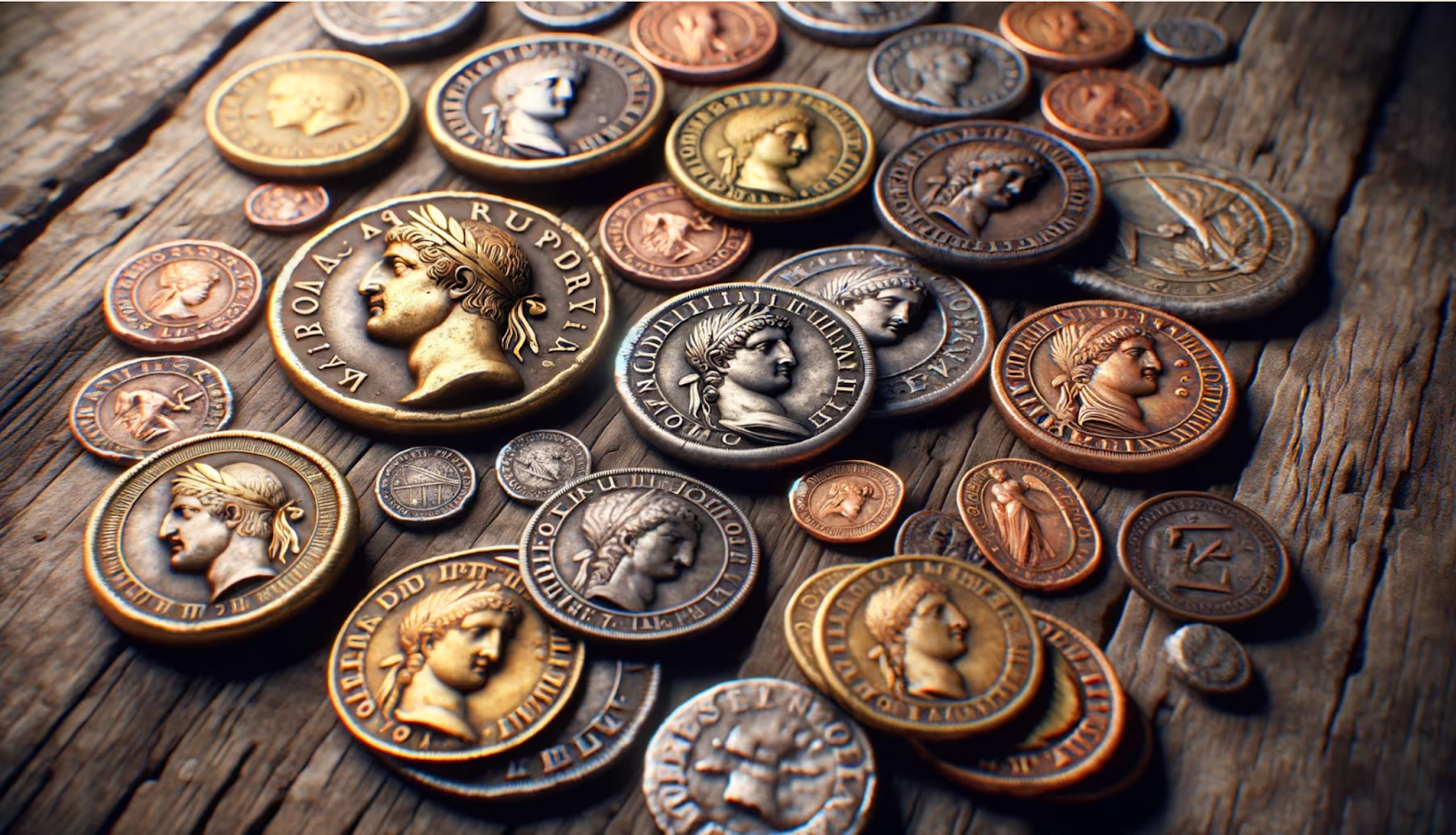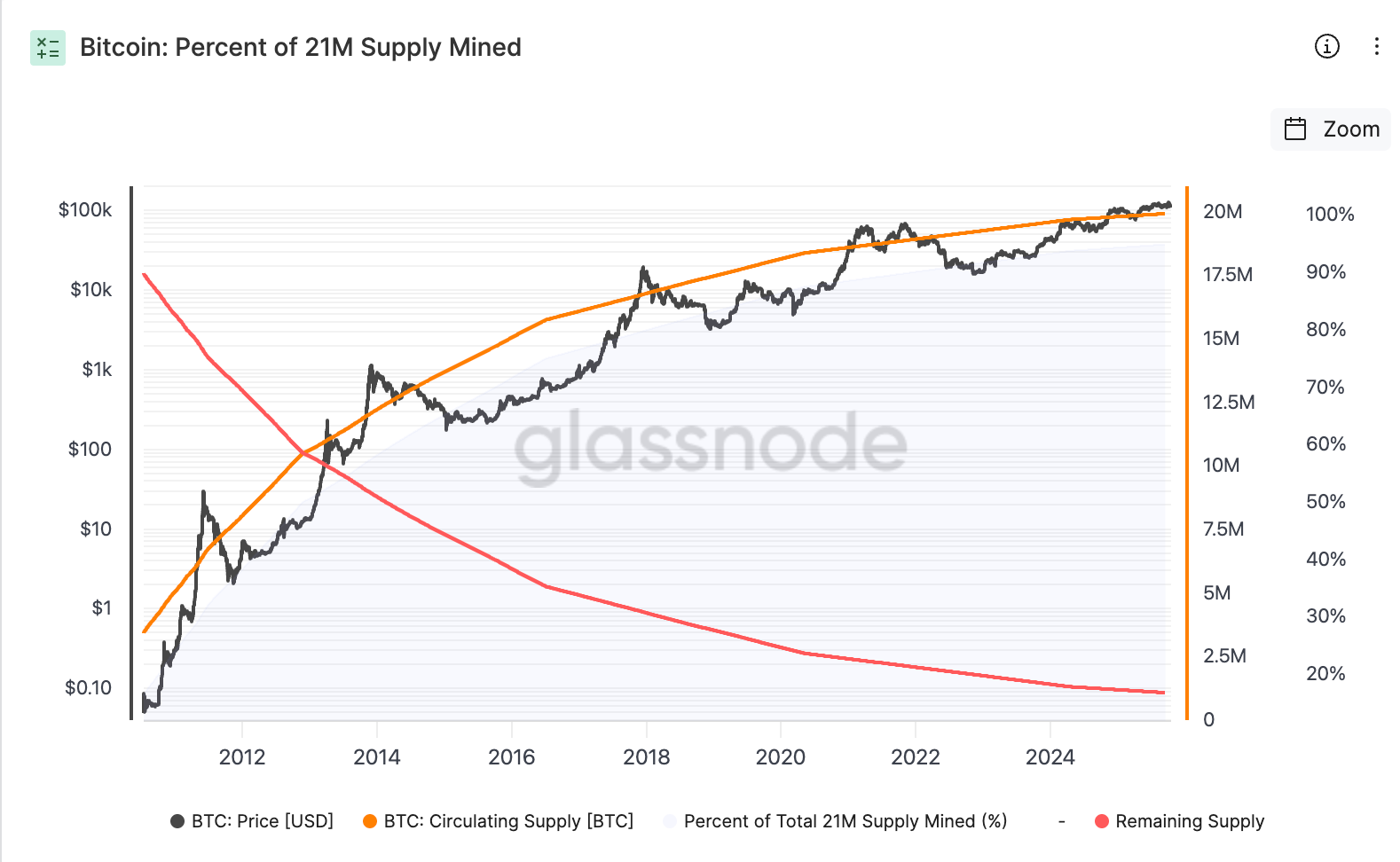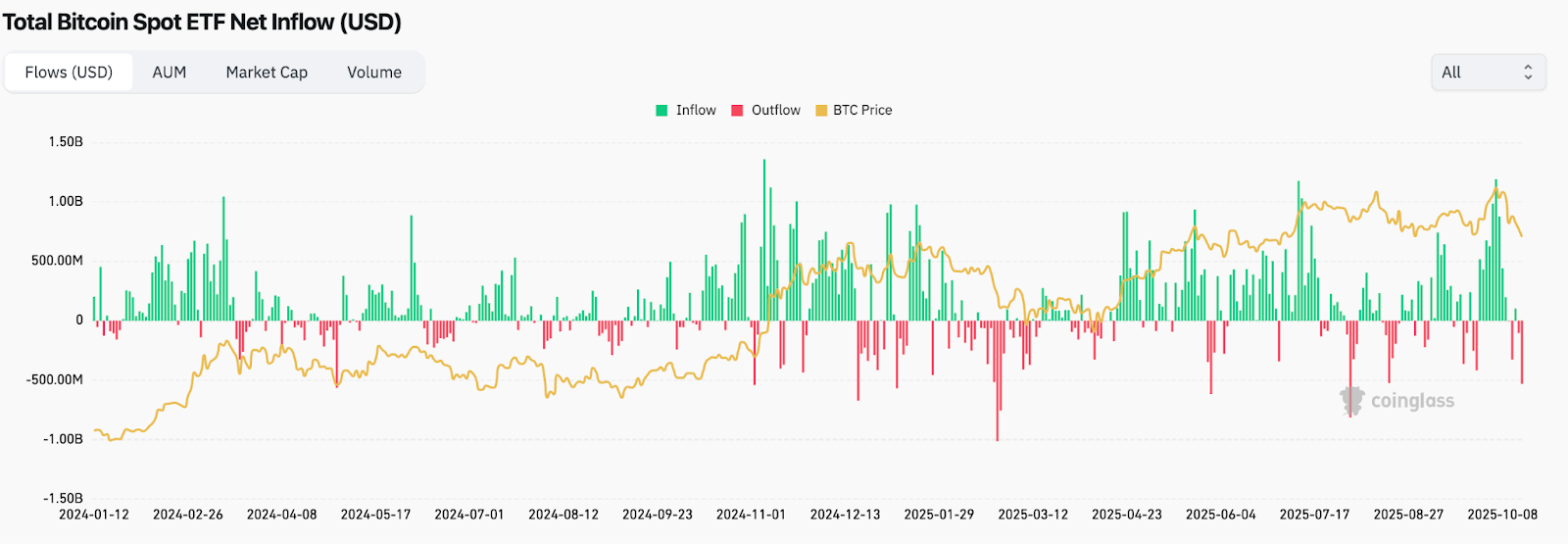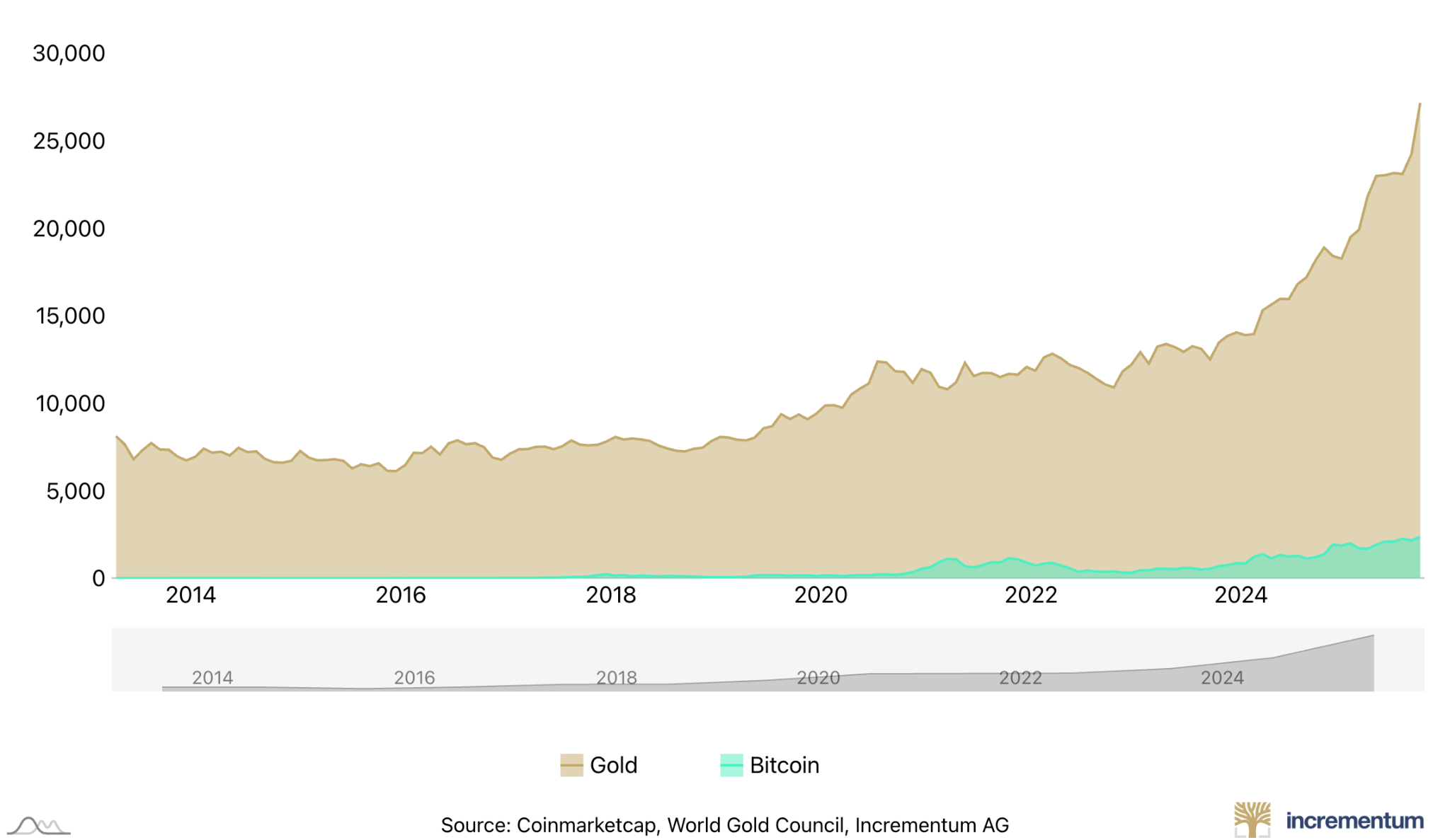A store of value is an asset designed to preserve or even enhance purchasing power over time, acting as a reliable hedge against inflation, economic turmoil, and the erosion of fiat currencies. Throughout history, assets such as gold have fulfilled this role, symbolizing wealth and stability across civilizations for thousands of years. In the digital age, Bitcoin has emerged as a contender, challenging traditional notions with its blockchain-based design. This article evaluates Bitcoin and gold through the lens of seven fundamental properties of money: durability, portability, divisibility, uniformity, limited supply, acceptability, and fungibility that underpin their effectiveness as stores of value. We focus purely on these inherent characteristics, without offering financial advice or investment recommendations. Finally, we'll explore Bitcoin's unique trait of non-sovereignty, which sets it apart in a world dominated by centralized authorities.

The Seven Key Properties of a Store of Value
Durability
Durability ensures an asset can endure physical wear, environmental hazards, or time without degrading in value. Gold shines here: it's chemically inert, resisting corrosion, rust, or decay, and has been stored in vaults for centuries intact.
Bitcoin outshines cold by achieving infinite durability through digital resilience. As entries on a decentralized blockchain, bitcoins aren't subject to physical decay, they're replicated across thousands of nodes worldwide. The network's consensus mechanism protects against tampering, and as long as electricity and the internet persist, Bitcoin remains secure. However, this introduces technological risks, like potential quantum computing threats or widespread infrastructure failures, unlike gold's standalone physical permanence (1).
In essence, gold's durability is timeless and tangible, while Bitcoin's is network-dependent but immune to everyday physical threats.
Portability
The ability to move value across distances without excessive cost or risk is crucial in a global economy. Gold's portability is limited by its density: a million dollars worth weighs over 60 pounds, requiring armored transport, insurance, and customs clearance for international moves (2).
Bitcoin revolutionizes portability. Transferring the same value requires only a smartphone and internet connection, completing in minutes for pennies in fees via the Lightning Network or base layer. Borders mean nothing to Bitcoin as it’s borderless by design, enabling instant global remittances without intermediaries. Bitcoin clearly outperforms gold for large-scale or remote transfers, democratizing access to value movement in ways physical assets can't match.
Divisibility
A strong store of value must be split into smaller units without proportional value loss, facilitating precise exchanges. Gold is divisible by melting and recasting into grams, troy ounces, or even nanograms, but this process incurs costs for assaying and refining, limiting practicality for tiny fractions. Bitcoin excels with atomic-level divisibility: one bitcoin splits into 100 million satoshis (0.00000001 BTC), enabling micro-payments down to fractions of a cent (3). The protocol enforces this seamlessly on-chain, with no physical reconfiguration needed.
While both assets are divisible, Bitcoin's digital precision makes it far more granular and user-friendly.
Uniformity

Uniformity demands consistency across units, ensuring any portion is equivalent in quality and value. Refined gold meets standards like 99.99% purity, but verifying alloys or artisanal forms requires expertise or equipment, introducing trust dependencies (5). Unlike gold which has different purity forms measured in karats every bitcoin is identical by protocol. Blockchain immutability guarantees uniformity, with transactions verifiable by anyone via public ledgers. No two bitcoins differ in intrinsic properties; authenticity is cryptographic, not assay-based.
Bitcoin's code-enforced uniformity eliminates gold's verification hurdles, fostering trust in a permissionless system.

Scarcity

Scarcity prevents inflation and preserves value; an asset must have a finite or predictably capped supply. Gold's supply is geologically constrained, with annual mining adding just 1-2% to above-ground stocks (6). Discoveries or tech advances (deep-sea mining, asteroid mining) could expand it. Bitcoin's supply is hardcoded at 21 million coins, with issuance halving every four years until the 2140 cap. This algorithmic scarcity is transparent and immutable without network consensus, immune to human greed or policy shifts.Both embody scarcity, but Bitcoin's is absolute and deterministic, contrasting gold's reliance on unpredictable extraction.
Acceptability
For an asset to store value, it must be widely recognized and exchanged for goods, services, or other assets. Gold's millennia-long history ensures near-universal acceptability from central banks holding trillions in reserves to jewelers and investors worldwide. It's a cultural and institutional staple.
Bitcoin's acceptability is nascent but accelerating: major firms like Tesla (briefly), Microsoft, and payment processors like PayPal integrate it, while El Salvador adopted it as legal tender (7). Volatility, regulatory bans in places like China, and education gaps hinder broader use, though institutional adoption signals growth.
Gold leads in entrenched trust, but Bitcoin's trajectory suggests potential parity as digital adoption surges.

Fungibility
Fungibility means one unit is interchangeable with another of equal value, without qualifiers. Standard gold bars or coins are fungible, but unique provenance or impurities can differentiate them, requiring certification (8). Bitcoins are fungible in theory 1 BTC equals 1 BTC but blockchain transparency allows tracking, potentially "tainting" coins linked to hacks or crime via analytics firms (9). Privacy coins mitigate this, but it's not inherent. Gold's physical anonymity aids fungibility, while Bitcoin's traceability poses challenges, though protocol upgrades could enhance it.
Bitcoin's Additional Characteristic: Non-Sovereignty
Beyond the seven properties, Bitcoin introduces non-sovereignty: operation independent of any government, central bank, or corporation. Powered by a global, permissionless network of miners and nodes, it resists censorship, seizure, or inflationary decrees. Users control private keys, enabling self-custody without reliance on trusted third parties. Gold, while historically "sound money," has been vulnerable to sovereign interference U.S. Executive Order 6102 in 1933 forced citizens to surrender it, and modern capital controls limit exports (10). Bitcoin's decentralization counters this, thriving in hyperinflationary environments like Venezuela or for dissidents evading authoritarian regimes.
This trait amplifies Bitcoin's store-of-value appeal in an era of fiat debasement and geopolitical risks, though it attracts regulatory pushback and demands technical savvy. It positions Bitcoin not as gold's replacement, but as a complementary, sovereignty-proof evolution.

Gold's physical tangibility, historical acceptability, and proven durability make it a timeless store of value, while Bitcoin dominates in portability, divisibility, uniformity, and enforced scarcity, bolstered by non-sovereignty. Acceptability and fungibility remain gold's strengths, though Bitcoin is closing the gap. As digital transformation accelerates, these assets may coexist, with Bitcoin extending value storage into cyberspace. This analysis highlights characteristics only; asset choices depend on individual risk tolerance, research, and professional guidance, not this discussion.
References
- Post-Quantum Cryptography
- World Gold Council, "Supply and Demand" Report
- Bitcoin protocol specification
- Roman Coins and The Monetary System of the Roman Empire
- LBMA Precious Metal Prices
- World Gold Council, "Supply and Demand" Report
- El Salvador Bitcoin Law (2021); company announcements via SEC filings
- PCGS/NGG numismatic standards
- Human Rights Foundation, Bitcoin reports
- Federal Reserve History, "Executive Order 6102
About Netcoins
Established in 2014 in Vancouver, British Columbia, Netcoins is a registered Restricted Dealer with the provincial securities commissions and a registered Money Services Business (MSB) with FINTRAC. The platform operates under BIGG Digital Assets Inc., a publicly traded company listed on the TSX Venture Exchange (TSXV: BIGG), and complies with applicable public company regulatory requirements.
The information provided in the blog posts on this platform is for educational purposes only. It is not intended to be financial advice or a recommendation to buy, sell, or hold any cryptocurrency. Always do your own research and consult with a professional financial advisor before making any investment decisions. Cryptocurrency investments carry a high degree of risk, including the risk of total loss. The blog posts on this platform are not investment advice and do not guarantee any returns. Any action you take based on the information on our platform is strictly at your own risk. The content of our blog posts reflects the authors’ opinions based on their personal experiences and research. However, the rapidly changing and volatile nature of the cryptocurrency market means that the information and opinions presented may quickly become outdated or irrelevant. Always verify the current state of the market before making any decisions.



.png)

.png)
.jpg)













